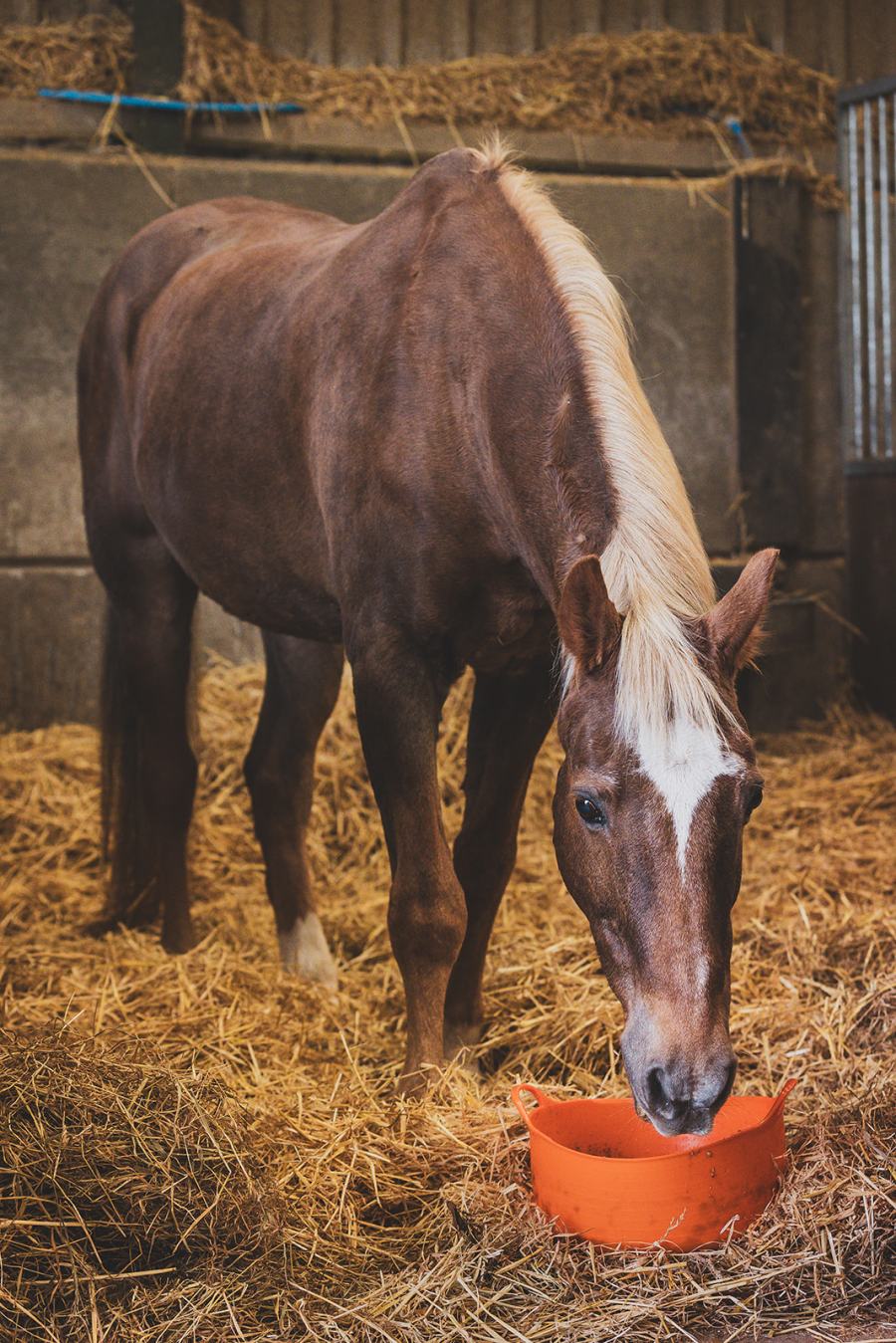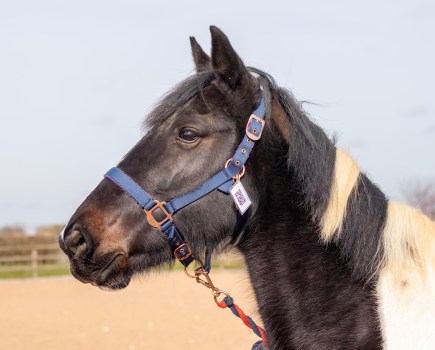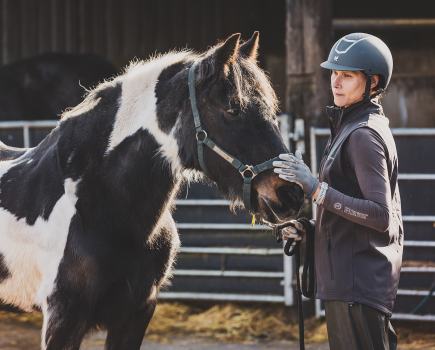Advertisement feature
Whether they are a golden oldie enjoying retirement, competing at top level in their late teens, or a school master teaching a novice rider the ropes, we believe all senior horses and ponies deserve to be completely cared for.
In this article, we will share some top feed and management advice and tips to help keep your super senior happy and healthy for as long possible.
Senior nutrition
There’s no one-size fits all approach to feeding (or managing) seniors, and the need to adjust your horse’s diet isn’t determined by the approach of a specific birthday.
In fact, healthy horses in good body condition may not need any changes made to their diet, whereas those showing multiple signs of ageing will need more specialist management.
While optimum requirements have not been established, senior horses may benefit from a diet that provides the vitamins, minerals and protein needed for work, even if they are retired.
Vitamin E, for example, plays a key role in supporting immune health and although there is no published requirement in horses of any age, vitamin C may help to support immune and respiratory health.
Senior feeds
Senior feeds now come in many different formats, with a range of low, moderate and high calorie options available.
Some products also include added functional ingredients to support joint and/or digestive health.
Choosing a senior feed is often a convenient way of ensuring older horses receive the nutrients they need but, in some cases, the most suitable feed may not say ‘senior’ on the bag.
Therefore contacting a nutrition advisor for specific advice can be helpful, especially for those older equines prone to clinical conditions.

Dental issues
There is a saying that horses survive as long as their teeth and this is certainly true in the wild.
In a domestic situation, dental issues are one of the main reasons for weight loss in older horses. Some dental issues can be resolved, but management of those that can’t often relies on finding a suitable way to replace the long fibre portion (including grass, hay and haylage) of the diet.
Weight loss and muscle wastage
Some (but not all) seniors are prone to weight loss and benefit from feeds rich in highly digestible fibre and oil to provide a sympathetic source of additional calories.
While many owners observe muscle loss in older horses, this may not be a direct effect of ageing. A reduction in exercise has a larger effect on muscle tone than ageing per se.
Muscle atrophy or ‘wastage’ can affect health and welfare in a number of ways, including a reduced ability to work or even simply getting up after laying down.
It is important to discuss any changes with your vet, especially if there have been no changes in the horse or pony’s workload or diet.
Joint disease
Pain from general joint disease can affect appetite and overall welfare. Some seniors may experience discomfort when lowering their head to eat, pulling hay from a net or grazing. Discuss a pain management programme with your vet if you have any concerns.
Remember that excess weight gain increases joint strain, which is one reason why maintaining a healthy bodyweight is of increased importance for senior equines.
Temperature control
In the same way that humans often become more sensitive to heat and cold as they age, older horses do not cope as well in extremes of temperature compared to younger horses.
So, in colder months consider rugs, shelters and stabling. During hotter months, concentrate on keeping older horses cool with clipping, hosing down and making sure they have appropriate shade and unlimited access to clean drinking water.
Immune defences
Horses, just like humans, show signs of age-related decline in immune function, which leaves them more susceptible to infections.
This effect may be exacerbated in overweight and obese horses, which is another reason to keep your senior’s waistline in check.
Insulin dysregulation
While not all horses and ponies with pituitary pars intermedia dysfunction (PPID, also known as Cushing’s syndrome) are insulin dysregulated, many of them are, which means they are at an increased risk of laminitis.
However, research has shown that even healthy senior horses can have an increased insulin response to a meal high in starch or sugar.
This suggests that restricting starch and sugar intake may be beneficial for all seniors, regardless of whether they have PPID or a history of laminitis.
Changes in the gut microbiome
The horse’s large intestine or ‘hindgut’ is home to trillions of tiny microbes, including bacteria, viruses and fungi, and these are essential for fibre digestion and helping to regulate the immune system.
Research* shows that age is associated with a less diverse population of microbes in the large intestine in horses (but not in similarly aged ponies), which may make them more sensitive to changes in diet.
The fact the same reduction in diversity was not seen in ponies may be a sign that they ‘age later’ than horses.
Herd dynamics
As horses age, herd dynamics become increasingly important. Horses benefit in many ways by living in a herd environment, but as they get older, they may be pushed down the pecking order by younger animals which means they may lose out when it comes to food and water.
Look out for signs of bullying and feed horses separately if needed. Ideally, provide a large water trough or more than one water supply in the field too.
SPILLERS Super Seniors’ Club
Caring for senior horses is a journey filled with love, dedication, and unique challenges. At SPILLERS, we understand the special place older horses hold in our hearts, which is why we created the SPILLERS Super Seniors’ Club — a supportive community for all owners who share the same passion for keeping their senior horses happy and healthy.
Whether your charge is thriving in retirement, still active, or showing signs of ageing, we’re here to provide expert guidance, practical advice, and a platform to celebrate your horse’s golden years.
Join today and connect with horse owners like you! Visit our Facebook group: SPILLERS Super Seniors’ Club.
*References
- Dougal, K., de la Fuente, G., Harris, P.A., Girdwood, S.E., Pinloche, E., Geor, R.J., Nielsen, B.D., Schott II, H.C., Elzinga, S. and Newbold, C.J., 2014. Characterisation of the faecal bacterial community in adult and elderly horses fed a high fibre, high oil or high starch diet using 454 pyrosequencing. PloS one, 9(2), p.e87424.
- Morrison PK , Newbold CJ , Jones E , Worgan HJ, Grove-White DH, H. Dugdale AH , Barfoot C , Harris PA & Argo CM (2018) The equine gastrointestinal microbiome: Impacts of age and obesity. Front. Microbiol., 07 December 2018 https://doi.org/10.3389/fmicb.2018.03017








